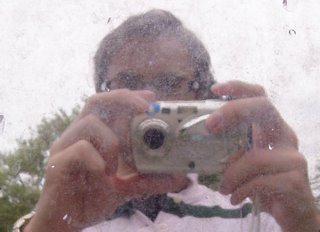I don't really know why Cameron Crowe's films seem to work for me time and time again. While it's no suprise that I absolutely love the critically acclaimed Almost Famous , even Crowe's box office and critical dissapointment Vanilla Sky became a favourite of mine. Perhaps Crowe just hits on aesthetic notes that I mesh well with my own sensibilities. Or perhaps it's just merely that the man is the master of creating soundtracks, melding popular music into his films in memorable and remarkable ways (see the "Tiny Dancer'" scene in Almost Famous or the Tom Cruise freakout to "Good Vibrations" in Vanilla Sky).
The main reason to see Elizabethtown.
Elizabethtown isn't an out and out homerun; let's just get that out of the way (maybe that's for that other Kentucky town, Louisville to handle). It's flawed in a number of ways, and coupled with the failure of Vanilla Sky, this may hurt Crowe's Hollywood currency. It isn't going to win any awards, and won't probably bank hugely at the box office. But to me this is a much more interesting film than most directors are pumping out these days. It's a personal film; Crowe has gone to great lengths to highlight this in the promotional material and in the set up of the film itself. And it shows through in the film itself.
Drew Baylor (Orlando Bloom shedding the armor and English accent) travels to Elizabethtown, Kentucky after his father passes away in the wake of a phenomenal personal failure at work and in life in general. As expected, over the course of the film Drew finds new zeal for life in the love of his family and friends and in the chance relationship with a peppy airline stewardess, Claire (Kirsten Dunst). The film is somewhat disjointed in some ways. The opening scenes of Drew's failure in shoe design and suicidal intentions don't mesh with the down to earth flavours of Kentucky. Some of the plot elements are downright goofy and too coincedental for a film that seems to demand that we emotionally connect with it. It's not until Drew encounters Claire on his trans-continental red eye that the film really picks up. Kirsten Dunst is amazing. Claire is so charming, so much so that I wanted to run away with her part way through the film. The performances of the two main actors go a long way to making the film work, and it shows that Crowe spends a lot of time working with his actors to get what he wants out of them.
While I said that the film doesn't entirely mesh, on their own the elements of the film are fantastic. From the hours long phone conversation (one interesting motif in the film is the use of cellphones, something that really grounds the film in the America of today) to the final roadtrip, these sequences completely engaged me. Especially in the last half of the film, the emotional elements of the story start to come together and work, perhaps in part because of my own travels and dealings with death in the last few months (my grandmother passed away from cancer at the end of August in case you're wondering).
A word on the music in the film: Crowe's use of music is spot on. From the almost theme song of the film, Elton John's "My Father's Gun" to Ryan Adams (a personal favourite) with "Come Pick Me Up" Crowe creates a solid, cohesive album of sincere, rock and alt-country songs that make it the perfect roadtrip music to travel across the heartland of America. Of course, this becomes the climax and most memorable piece of the film. When all was said and done, I wanted to take Claire's map and go on my own roadtrip. And on that count, Crowe succeeds.
Anders Bergstrom's blog on Words, Films, and Music
Sunday, October 16, 2005
Subscribe to:
Post Comments (Atom)

No comments:
Post a Comment